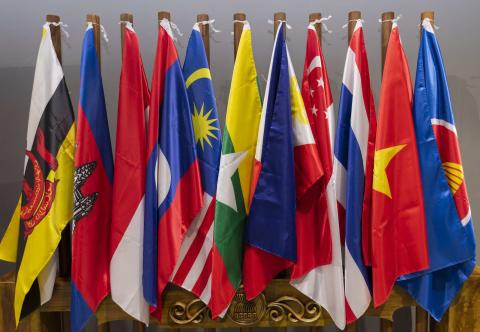
Here in Hong Kong these days, you can't pick up a newspaper (metaphorically speaking) without seeing headlines on two topics: the people-to-people relationship between Hong Kong and mainland China, and Hong Kong's political decision-making process.
The two issues appear to run at very different levels. Frictions with mainlanders are mostly petty, whereas the political discourse is fundamental, even ideological. But actually the two issues are intimately entwined, and the tensions within and between them are the root of much unhappiness here. Identity issues and political problems have fused to create a crisis of political identity. Who are we, exactly?
Of course, unhappiness is hardly unique to Hong Kong, nor is it caused solely by 'political identity' problems. The city does rate poorly on some (but not all) international surveys of life satisfaction, and there are many reasons for that. However there is an unusually visceral feeling about political identity: while Hong Kong is rightly and proudly a Chinese city, it wants to be more than that, and it feels its aspiration threatened.
Irritation with mainland visitors, investors and immigrants abounds — over maternity beds, school and university places, milk powder rations, housing costs, and so on. One bizarre meme is mainland toddlers urgently relieving themselves in public places. The indignant reaction of some Hongkongers is even more childish. Protests directed at mainland 'locusts' are downright embarrassing, and are turning off tourists. The official Chinese press reminds us, correctly, that Hong Kong has prospered by serving the motherland. A fringe minority, perhaps, of disgruntled locals is biting the hand that feeds us. [fold]
Yet Beijing's exhortations to 'integrate' also aggravate. There is mainstream Hong Kong angst at being supplanted by Shanghai and Shenzhen; we want to remain special. Bi Feiyu, a famed mainland author, implores us to preserve our unique 'culture and etiquette.' He warns us against being over-run, and to guard our hard-earned civility.
Nowhere is the loss of courtesy more evident than in politics, which at times combines clownish pantomine with a wayang shadow puppet-show of quiet warnings. It's complicated, but ultimately it's all about the election for Chief Executive in 2017 and the legislative chamber the year before. Beijing understandably wants a reliable patriot appointed to the top job; the 'democrats' or liberals want universal suffrage. There is an electoral college in place, but it includes 'functional constituencies' and other Beijing-friendly instruments intended to ensure a smooth nomination process. This is our version of Juvenal's conundrum: who elects the electors?
I believe Hong Kong's 'political identity' crisis is one of unrealistic expectations. We act like a quasi-sovereign state when in fact we are a mid-sized (albeit important) Chinese municipality. This misperception was evident in our quixotic demarche to the Philippines over a tragic botched rescue attempt on a busload of Hong Kong tourists held hostage in Manila. A city making formal demands on a sovereign country over a failed local police operation is, however heartfelt the grievance, a diplomatic absurdity.
It's important to keep things in perspective. We have competent administration, robust judicial standards and an enviable quality of life. For that we should be grateful. International professionals, the world's swing-voter class, flock here and many of them stay (low taxes of course are one reason). Although there are various pressures from Beijing, in some ways we are freer than Singaporeans. Yet Singapore is truly independent and notionally it has universal suffrage too!
Many middle-class Hongkongers believe the keys to happiness are 'voting rights' and greater 'independence' from Beijing. Such hopes may be both unrealistic and misplaced. While Hong Kong may have a less-resolved political identity than Singapore, it already delivers most of the goodies of a well-functioning democratic nation. The gripes that folks still have – high housing costs, long queues, and so on – aren't going to disappear if we got more democracy and more sovereignty.
Photo by Flickr user MojoBaron.
